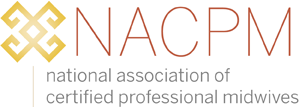It often seems overwhelming these days to keep up with all the research available online to support decision-making for you and your clients. If you’re wondering where to look, what sources to trust, and how to interpret and apply the best research, don’t miss the next NACPM webinar “Evidence-Informed Practice: Research Literacy & Shared Decision-Making.” Dr. Courtney Everson, PhD, will answer these questions and more on Thursday, February 16th from 2:00 to 3:30 pm ET.
The following information about evidence-informed practice or EIP is drawn from Dr. Everson’s excellent presentation at the 2016 MANA Conference with co-presenters Shannon Anton and April Kline.
Evidence-informed practice (EIP) is that sweet spot at the intersection of the best available research evidence, the midwife’s professional/clinical expertise, and the client’s values and individualized needs.
Figure 1 Courtesy of C. Everson
While EIP is fundamental to the model of care provided by CPMs, implementing it consistently can be a challenge for midwives and clients who have trouble accessing or understanding research, or who fear that research ignores individual client needs or supplants clinical expertise. Fortunately, the EIP cycle (Figure 2) can help you integrate research effectively with many new learning resources available to address these challenges. Attend the webinar to learn more about each step of the cycle!
Figure 2 Courtesy of C. Everson
EIP has received increasing attention in recent years from health policy-makers and leading health experts who believe that developing a common knowledge base and language for EIP is key to improving inter-professional collaboration and optimizing health outcomes. Health professional educators are seeking to strengthen professional competency in EIP through enhanced coursework and skills development based on a set of specific EIP competencies. Nationally, six meta-competencies have been outlined for integrated practice that all health professionals are urged to achieve. Meta-competency #5 for integrated practice focused on “Evidence-based healthcare and evidence-informed practice.” Supporting this work is a priority of the Center for Optimal Integration, a strategic initiative of the Academic Collaborative for Integrative Health (ACIH). CPMs are represented on the ACIH Board of Directors nationally by Dr. Everson, Association of Midwifery Educators, and Nichole Reding, Midwifery Education Accreditation Council.
Midwives who want to take a deeper dive into the labyrinth of evidence-informed practice (EIP)—and achieve meta-competency #5 on EIP—can enroll in the Principles of Evidence-Informed Practice, a full 2-credit MEAC-approved online course taught by Dr. Everson at the Midwives College of Utah.
Midwifery educators who want to learn more about incorporating EIP competencies into their programs can visit the EIP Resource Guide for Educators at the Center for Optimal Integration website. Educators may also be interested in attending the annual conference “Process of Integrating Evidence (PIE) for Complementary and Integrative Health Educators” which will be held July 13th-15t, 2017 in Bloomington, Minnesota.


